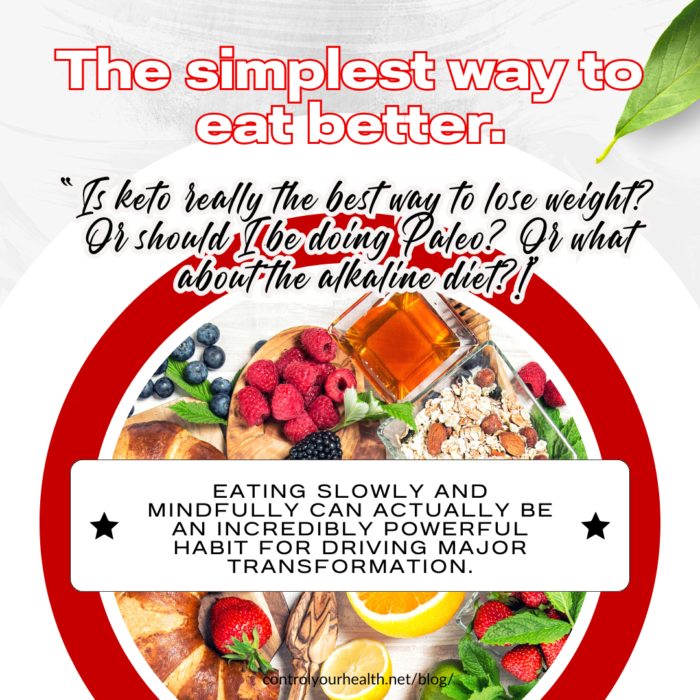Tip of The Week: Slow Eating
I’m a big believer that slow and mindful eating is one of the MASTER SKILLS for fat loss.
Because the goal is to eat a sufficient amount to be reasonably comfortable, but not more than that.
This week I wanted to share some recent research published in Appetite on how what you hear while you eat can impact how fast you eat.
Check it out and let me know what you think.
The scientists report that:
- People ate faster when they listened to music with a fast tempo (145 bpm). (Example: “Born to Run”—Bruce Springsteen)
- People ate slower when they listened to music with a slow tempo (45 bpm). (Example: “Call Out My Name”—The Weekend)
- When people listened to any kind of music—even the up-tempo stuff—they ate slower compared to when they ate in silence.
The researchers hypothesized that faster music makes people feel more aroused or excited, stimulating their senses and making them eat faster.
Slower music, on the other hand, may help people feel calmer and more relaxed, which could lead to more mindful eating.
The study’s findings also affirm something bigger: What people feel while they eat is important.
Folks who struggle to eat slowly and mindfully may be more likely to succeed if they take steps to feel more relaxed during meal times.
And if slow music—or tunes of any tempo helps—you do that, then it could be worth trying. Think of it as “setting the mood.” (But please: No Muzak.)
PMID: 32682852
Mathiesen SL, Mielby LA, Byrne DV, Wang QJ. Music to eat by: A systematic investigation of the relative importance of tempo and articulation on eating time. Appetite. 2020 Dec 1;155:104801.
Sifu Oscar
P.S. Whenever you’re ready, here are ways we can help you get started.
1. Schedule a time to observe a class.
Interested in Kung Fu or Tai Chi? First step is to watch a class and see if we would be a good fit! Email: kungfu@wahlum.com for an appointment.
2. Become part of my exclusive Coaching Group with CYH Remote Coaching. Get personalized coaching delivered right to your phone and catered to your specific goals.
Email: kungfu@wahlum.com for info.

